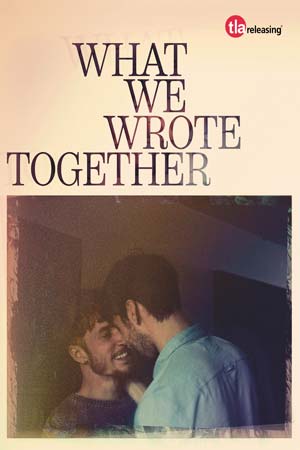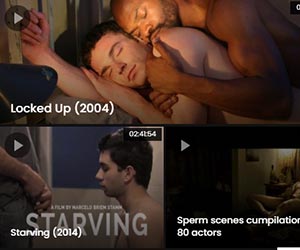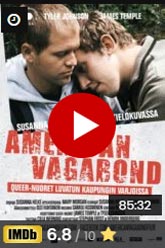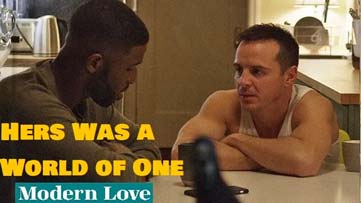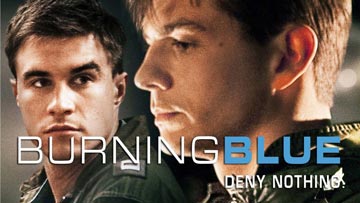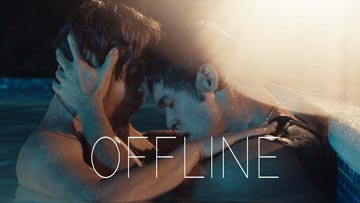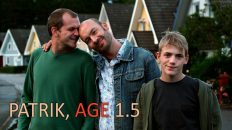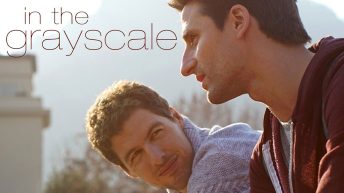Watch Here: https://youtu.be/2DpKofKq25U
The movie follows Maurice (James Wilby) down his road of self-discovery from his embarrassing teen years to Cambridge to his post-collegiate years as a young man struggling to come to terms with his sexuality in a time when homosexuals were mercilessly persecuted.
Watch on other sites:
”England has always been disinclined to accept human nature” – E.M. Forster
 1909. Maurice Hall (James Wilby) is an undergraduate at Kings College, Cambridge. While there, he meets and falls in love with Clive Durham (Hugh Grant). Although they are very close, and continue to be so after University, their love is never consummated. But then Clive, scared by the arrest on an immorality charge of a University friend who later commits suicide, breaks off their relationship, leaving Maurice devastated….
1909. Maurice Hall (James Wilby) is an undergraduate at Kings College, Cambridge. While there, he meets and falls in love with Clive Durham (Hugh Grant). Although they are very close, and continue to be so after University, their love is never consummated. But then Clive, scared by the arrest on an immorality charge of a University friend who later commits suicide, breaks off their relationship, leaving Maurice devastated….
 E.M. Forster wrote Maurice around 1914 but due to concerns about the acceptability of its subject matter, he didn’t let it be published until after his death. The novel finally appeared in 1971. It’s usually considered one of his weaker novels, but as is often the way, the lesser novel makes for a better film. In my mind it’s the best of the three films Merchant Ivory made from Forster’s work, and one of their best films overall.
E.M. Forster wrote Maurice around 1914 but due to concerns about the acceptability of its subject matter, he didn’t let it be published until after his death. The novel finally appeared in 1971. It’s usually considered one of his weaker novels, but as is often the way, the lesser novel makes for a better film. In my mind it’s the best of the three films Merchant Ivory made from Forster’s work, and one of their best films overall.
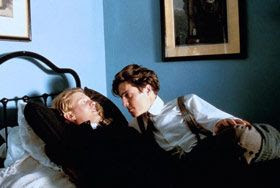 Why is this? There’s a case to be made that Forster as a novelist was crippled by his own sexual orientation, to which he never adjusted. (And let’s not forget that male homosexuality was illegal in Britain until 1967, leaving gay men open to blackmail and long prison sentences, not to mention possible Oscar Wilde-like public disgrace.) Maurice was clearly a very personal work, to which he rather sentimentally gave a happy ending. As Merchant and Ivory are a gay couple of long standing, you can see how this would appeal to them. I’m not sure if Ivory is correct in claiming that this film was the first unapologetic gay love story (complete with brief full-frontal male nudity), with his hero not suicidal at the end but happily in a relationship with gamekeeper Alec Scudder (Rupert Graves), one that cuts across class barriers as well as sexual ones. But it’s certainly an early example of such a film. It’s hard to imagine Merchant Ivory as radical filmmakers, but just this once, in their oh-so-discreet and polite way, they may have slipped something subversive past their audience. Seventeen years later – and I speak as someone who saw Maurice on its cinema release – it may be hard to realise what the fuss was about. But back in 1987, the AIDS epidemic was only six years old, and as Ivory says if Maurice had been made very much earlier it might have attracted more condemnation than it did.
Why is this? There’s a case to be made that Forster as a novelist was crippled by his own sexual orientation, to which he never adjusted. (And let’s not forget that male homosexuality was illegal in Britain until 1967, leaving gay men open to blackmail and long prison sentences, not to mention possible Oscar Wilde-like public disgrace.) Maurice was clearly a very personal work, to which he rather sentimentally gave a happy ending. As Merchant and Ivory are a gay couple of long standing, you can see how this would appeal to them. I’m not sure if Ivory is correct in claiming that this film was the first unapologetic gay love story (complete with brief full-frontal male nudity), with his hero not suicidal at the end but happily in a relationship with gamekeeper Alec Scudder (Rupert Graves), one that cuts across class barriers as well as sexual ones. But it’s certainly an early example of such a film. It’s hard to imagine Merchant Ivory as radical filmmakers, but just this once, in their oh-so-discreet and polite way, they may have slipped something subversive past their audience. Seventeen years later – and I speak as someone who saw Maurice on its cinema release – it may be hard to realise what the fuss was about. But back in 1987, the AIDS epidemic was only six years old, and as Ivory says if Maurice had been made very much earlier it might have attracted more condemnation than it did.
 Many Merchant Ivory films are full of surface pleasures: sumptuous costume and production design and camerawork, making a relatively small budget seem much larger, not to mention literate dialogue and fine performances from some very distinguished actors. But what is often missing is passion: you don’t sense an overwhelming urge to make this film rather than something else. That isn’t the case with Maurice though, which is constantly engaging and in places quite moving if a little overlong. Merchant Ivory’s usual scriptwriter Ruth Prawer Jhabvala was committed to a novel at the time and didn’t feel comfortable with the subject matter, so the screenplay is the work of Kit Hesketh-Harvey (of cabaret act Kit and the Widow) and Ivory. As Hesketh-Harvey admits, much of the dialogue comes straight from the book.
Many Merchant Ivory films are full of surface pleasures: sumptuous costume and production design and camerawork, making a relatively small budget seem much larger, not to mention literate dialogue and fine performances from some very distinguished actors. But what is often missing is passion: you don’t sense an overwhelming urge to make this film rather than something else. That isn’t the case with Maurice though, which is constantly engaging and in places quite moving if a little overlong. Merchant Ivory’s usual scriptwriter Ruth Prawer Jhabvala was committed to a novel at the time and didn’t feel comfortable with the subject matter, so the screenplay is the work of Kit Hesketh-Harvey (of cabaret act Kit and the Widow) and Ivory. As Hesketh-Harvey admits, much of the dialogue comes straight from the book.
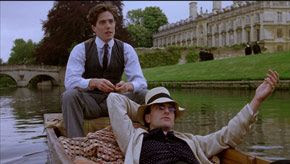 Apart from the central three (and Graves doesn’t appear until after the halfway mark), most of the roles are little more than adroitly-played cameos. (Helena Bonham Carter turns up uncredited as a spectator at a cricket match.) Although Wilby and Graves are excellent, it’s Hugh Grant’s Clive on which the film turns. Grant has played the silly-ass dithering Englishman a few too many times in Four Weddings and a Funeral and its follow-ups, so it’s easy to forget how good an actor he can be. Clive is one of his best roles, along with another gay role in the little-seen An Awfully Big Adventure. Clive’s platonic love for Maurice dominates the first half of the film and it’s Clive’s crisis of conscience which causes the key event in the film, when he rejects Maurice. Although we see Maurice leave for a hopefully happy future as a gay man, we end the film with Clive. As he gazes out of a window, the camera looks in at him, his wife Anne (a deft performance of uncloying sweetness from Phoebe Nicholls, an actress much underused by the British Film Industry) clearly in love with him but he will never be able to reciprocate, the frame of the window like the bars of a prison of his own making.
Apart from the central three (and Graves doesn’t appear until after the halfway mark), most of the roles are little more than adroitly-played cameos. (Helena Bonham Carter turns up uncredited as a spectator at a cricket match.) Although Wilby and Graves are excellent, it’s Hugh Grant’s Clive on which the film turns. Grant has played the silly-ass dithering Englishman a few too many times in Four Weddings and a Funeral and its follow-ups, so it’s easy to forget how good an actor he can be. Clive is one of his best roles, along with another gay role in the little-seen An Awfully Big Adventure. Clive’s platonic love for Maurice dominates the first half of the film and it’s Clive’s crisis of conscience which causes the key event in the film, when he rejects Maurice. Although we see Maurice leave for a hopefully happy future as a gay man, we end the film with Clive. As he gazes out of a window, the camera looks in at him, his wife Anne (a deft performance of uncloying sweetness from Phoebe Nicholls, an actress much underused by the British Film Industry) clearly in love with him but he will never be able to reciprocate, the frame of the window like the bars of a prison of his own making.
Recommend to watch this gay classic film.




